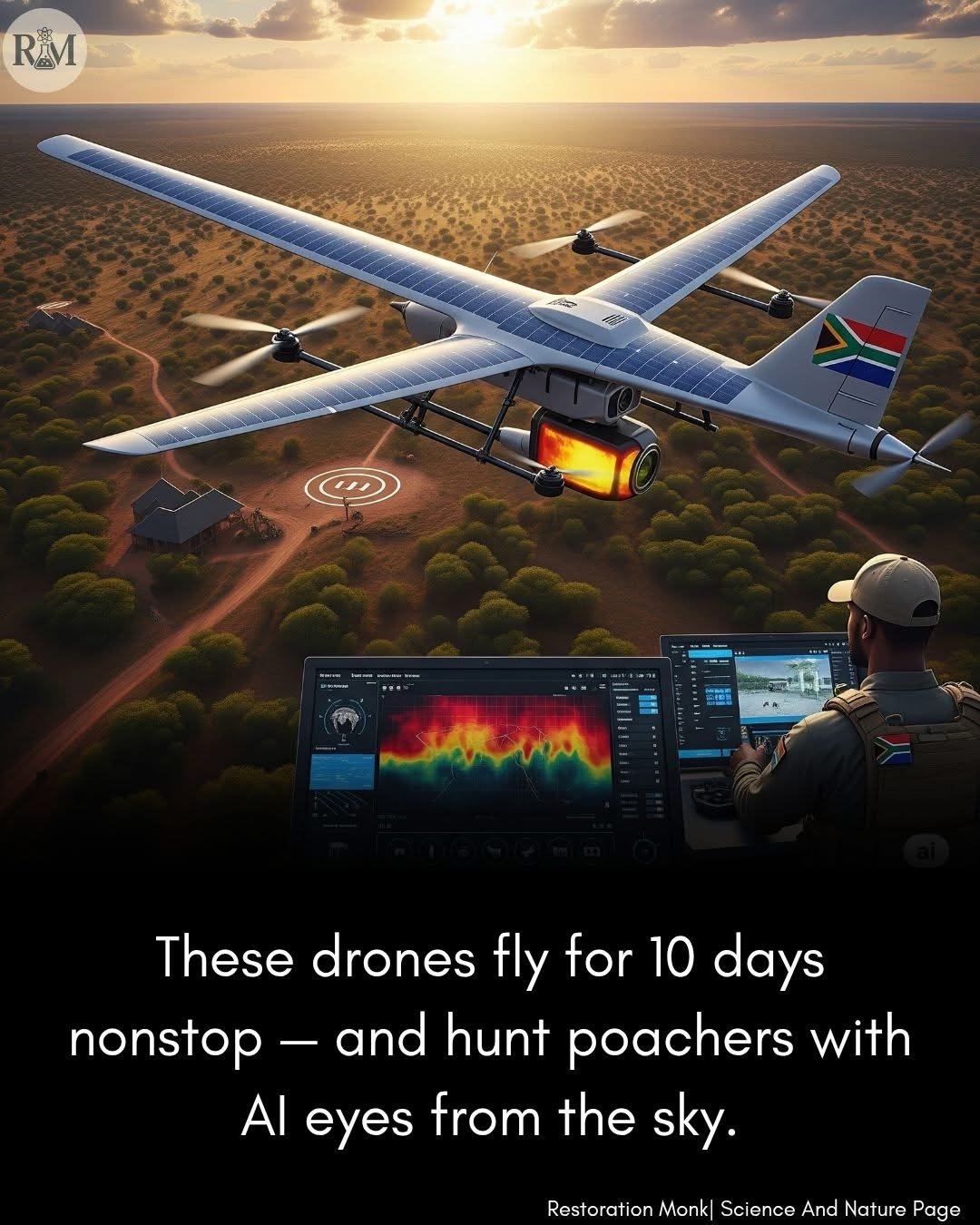Kruger National Park, South Africa — South African engineers have developed and deployed AI-powered, solar drones to combat wildlife poaching in one of Africa’s largest game reserves.
The drones, designed by the Council for Scientific and Industrial Research (CSIR), can fly autonomously for up to 10 days without landing. They are powered entirely by solar panels on their wings and guided by advanced artificial intelligence trained to spot illegal activities from the sky.
Equipped with infrared cameras, acoustic sensors, and image recognition software, the drones can detect gunshots, vehicle movement, or even poachers on foot beneath thick tree cover. Once a threat is spotted, they silently track suspects and stream real-time video to park rangers.
The drones use ultra-light perovskite solar wings and smart energy routing based on AI weather forecasting, allowing them to patrol large areas without fuel or human crews. Built to handle harsh African conditions like dust, lightning, and bird strikes, they are ideal for long missions across remote terrain.
In recent tests, the drones helped stop two poaching attempts near endangered rhino populations and even identified illegal logging through thermal imaging — something satellites often miss.
This innovative system marks a major step forward in using clean, autonomous tech to protect Africa’s wildlife in real time.

